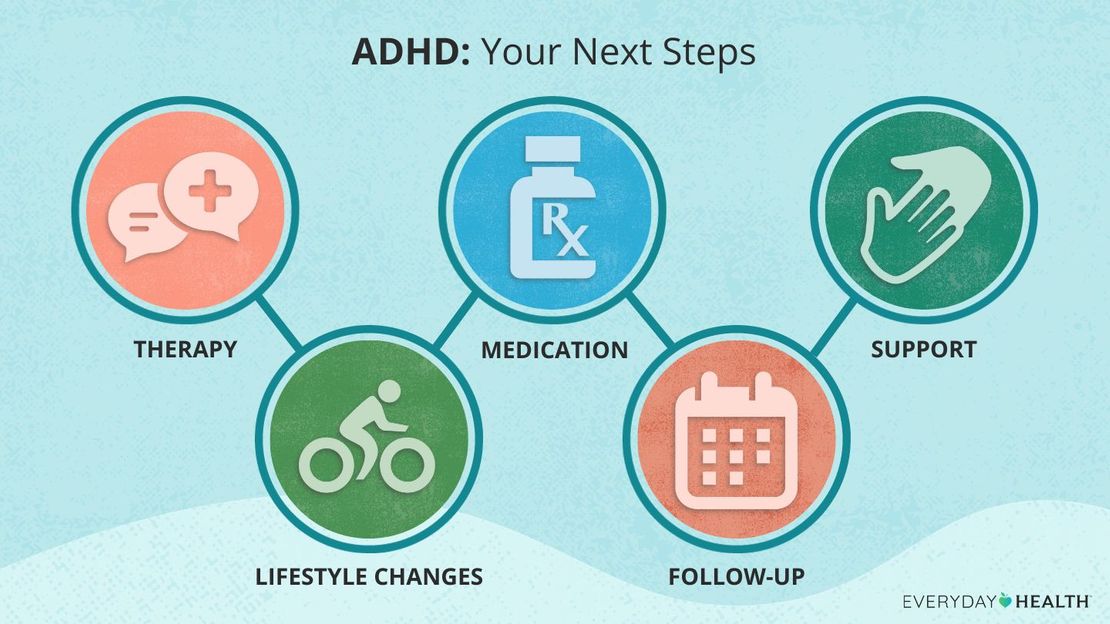The Connection Between Xanax and ADHD
Xanax is an anti-anxiety medication that belongs to a class of drugs called benzodiazepines. ADHD (attention deficit hyperactivity disorder) is a neurological condition characterized by inattention, hyperactivity, and impulsivity. At first glance, these two conditions appear very different. However, there are some key connections between using Xanax and having ADHD.
Treating ADHD Anxiety and Panic Attacks with Xanax
Many people with ADHD also suffer from anxiety disorders and panic attacks. The racing thoughts, restlessness, and impulsivity of ADHD can exacerbate underlying anxiety. Additionally, the challenges of living with ADHD symptoms can understandably cause anxiety and apprehension.
Xanax works by slowing activity in the brain and central nervous system to induce relaxation and calmness. For these reasons, doctors sometimes prescribe short-term Xanax to help relieve anxiety, panic attacks, and insomnia often experienced with ADHD.
Risk of Dependence and Addiction
Both ADHD and Xanax raise the risk of dependence and addiction. ADHD's effects on the brain's dopamine reward system make addictive substances particularly habit-forming for suffers. Meanwhile, Xanax and other benzodiazepines are well known for their addictive properties.
This combination means that people with ADHD face an elevated risk of becoming dependent on Xanax. Additionally, withdrawing from consistent Xanax use poses medical risks for those with ADHD.
Boosting Concentration with Stimulants
Stimulant drugs like Adderall and Ritalin are commonly prescribed to increase concentration and focus for people with ADHD. In some cases, doctors may alternate stimulant and anti-anxiety medications to treat both attentional and anxiety ADHD symptoms.
However, improperly mixing stimulants and Xanax can be dangerous. Their contradicting effects on the body and brain require very careful medical monitoring.
Using Xanax for ADHD Anxiety
Temporary Relief of Panic Attacks
ADHD and anxiety disorders have a complex relationship. Experts believe ADHD itself does not cause anxiety, but living with ADHD often leads to anxiety issues. Additionally, some developmental and neurological factors underlying ADHD also make sufferers prone to anxiety.
For these reasons, Xanax is sometimes prescribed on a short-term, as-needed basis to relieve panic attacks and high anxiety specifically stemming from ADHD. The relaxing effects help calm the racing thoughts while soothing physical panic symptoms.
Risks of Dependence
While Xanax provides fast-acting relief, it also carries significant risks of dependence and addiction. People with ADHD appear to have higher rates of substance abuse, perhaps related to seeking stimulation or self-medicating symptoms. Starting Xanax requires very careful monitoring to avoid prolonged use or abuse.
Consider Alternatives
Due to the habit-forming potential of Xanax, experts recommend first exploring alternative anxiety treatments for ADHD. Options include therapy techniques like cognitive behavioral therapy (CBT), regular exercise, ADHD education, and learning relaxation practices like meditation or mindfulness.
Some may also benefit from longer-term, less addictive medications for anxiety like certain antidepressants and buspirone.
Dangers of Mixing Xanax and ADHD Stimulants
Stimulants for Concentration and Focus
Stimulant medications like Adderall, Ritalin, Vyvanse are commonly used to treat ADHD symptoms of inattention and hyperactivity. These drugs increase the activity of neurotransmitters like dopamine and norepinephrine to sharpen focus and boost concentration.
For many with ADHD, stimulant medications are very effective for thought organization, impulse control, listening skills and completing tasks. However, they also come with side effects like insomnia, appetite loss, and anxiety which may lead some to take Xanax.
Contradictory Effects on Body
While stimulants energize the central nervous system, Xanax depresses and slows the CNS. This means combining Xanax and ADHD stimulants can have unpredictable and dangerous effects on heart rate, blood pressure, and breathing.
Unless carefully monitored by a doctor, mixing these medications runs major risks of overdose. It requires reducing stimulant doses to account for Xanax's amplifying effect on their concentration in the body.
Increase Risks of Dependence
Additionally, someone taking Xanax to "come down" from ADHD stimulants during the day or sleep at night has an increased risk of becoming dependent on both medications. Proper treatment requires addressing the underlying causes of stimulant side effects rather than masking them with Xanax.
Healthy Coping Strategies for ADHD and Anxiety
Cognitive Behavioral Therapy (CBT)
CBT is an evidence-based psychotherapy proven effective for both ADHD and anxiety. By modifying thought and behavior patterns, CBT can help minimize anxiety symptoms, obsessive thoughts, impulsivity and improve focus.
Education and Planning for ADHD Challenges
Seeking education on managing life with ADHD can alleviate anxiety stemming from feeling out of control. Learning ADHD coping strategies for time management, organization, and social situations prevents issues before they occur.
Exercise and Mindfulness Practices
Regular aerobic exercise provides a healthy outlet for excess energy from ADHD while lowering anxiety. Yoga, meditation, or mindfulness training teaches focusing thoughts and managing stress.
Better Sleep and Nutrition Habits
Getting adequate sleep, limiting caffeine, and improving nutrition helps stabilize mood and energy levels. Making lifestyle changes lessens the need for medications like Xanax.
Alternative Medications for Anxiety
Antidepressants for Anxiety
Certain antidepressants like SSRIs and SNRIs are FDA-approved to treat anxiety disorders. While not addictive like Xanax, they take several weeks to reach full effect. Options include Zoloft, Lexapro, Effexor.
Buspirone
Unlike Xanax, buspirone is not a tranquilizer and has a lower addiction risk. It can take up to 6 weeks to improve anxiety but avoids risks of benzos.
Hydroxyzine
The antihistamine hydroxyzine provides mild sedation and anxiety relief without being a controlled substance. It serves as a short-term option.
Beta Blockers
Beta blockers like propranolol curb physical anxiety symptoms like rapid heart rate and tremors. They don't address mental anxiety but help limit panic attacks.
Talk to Your Doctor About Safest Options
While Xanax provides fast relief, there are considerable health risks when combining it with ADHD stimulant medications or using it long-term. Always consult your doctor about the safest medication options for your situation.
Implementing lifestyle changes and exploring therapy for anxiety management can often reduce the need for addictive medications. But talk to your healthcare provider about medication options if anxiety symptoms continue interfering with your ADHD treatment and quality of life.
FAQs
Can Xanax be used to treat anxiety caused by ADHD?
Yes, Xanax may provide temporary relief for anxiety and panic attacks related to ADHD. However, the risks of dependence and addiction are high.
Is it dangerous to mix Xanax with ADHD stimulant medications?
Yes, combining Xanax with stimulants like Adderall or Ritalin can have serious risks including heart problems, breathing issues, and overdose. Extreme caution is required.
What are safer alternatives to Xanax for ADHD anxiety?
Some options include therapy like CBT, improving lifestyle habits, practices like meditation, long-term antidepressant use, buspirone, hydroxyzine, or beta blockers.
Can Xanax help with ADHD symptoms like inattention?
No, Xanax is not used to directly treat core ADHD symptoms. It mainly provides temporary relief for associated anxiety and panic attacks.
What causes anxiety issues to develop with ADHD?
Experts believe living with ADHD symptoms, racing thoughts, poor coping skills, and feeling out of control leads to secondary anxiety issues in many cases.
Disclaimer: This article is for informational purposes only and does not constitute medical advice. Always consult with a healthcare professional before starting any new treatment regimen.
Related Coverage
Between 2%-6% of adults likely have undiagnosed ADHD struggling with symptoms like inattention and restlessness. Learn how to locate specialists and prepare....
Comparing Strattera and Ritalin for ADHD treatment. Find out which medication may work best for your symptoms and lifestyle....
Learn tips for finding Adderall at pharmacies during shortages, including using locator tools, calling around, and asking about ordering from suppliers....
Use pictures and images to teach children good behavior. Visual examples demonstrate positive conduct versus bad behavior. Learn tips for modeling behavior with visual aids....
Childress has a range of homestyle eateries like Boulevard Cafe serving comfort foods alongside fast food chains like McDonald's and Sonic for quick bites along Highway 287....
The ADHD stimulant shortage is affecting patients nationwide. Find out why it's happening and what you can do about it....
Learn how Quillivant XR dosage works, its liquid strengths, titration tips, safety precautions, and step‑by‑step dosing guidance....
ADHD can make showering difficult. But using reminders, hygiene checklists, and creating a sensory-friendly bathroom space can help build showering habits....
Research shows gluten can worsen ADHD symptoms in children. Learn how gluten sensitivities impact hyperactivity, concentration and behavior. Tips for gluten-free diets....
Adderall requires a prescription and is illegal for recreational use, but when taken as directed for ADHD it is FDA-approved and legal under federal regulations....









